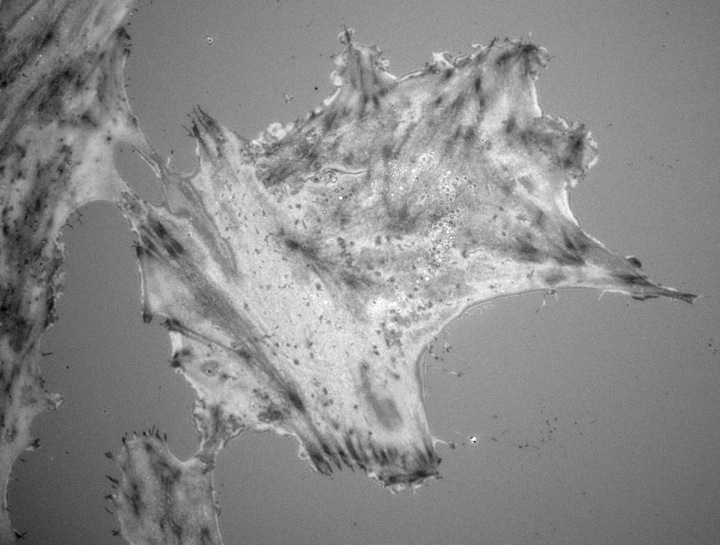In the same section
- Home
- Units
- Light, nanomaterials, nanotechnologies (L2n - CNRS-UMR 7076)
- Research topics
- Biophotonics and nanosensors
RICM

Reflection Interference Contrast Microscopy (RICM) is a non-fluorescent technique useful to pre-investigate cellular adhesion and migration. RICM picture results from the interference between the light reflected from the glass/water interface and the cell membrane. To better detect light reflected from the membrane, circularly polarization is implemented based on the use of a specific oil immersion objective (Zeiss antiflex including a quarter wave plate on the top). RICM contrast is directly related to the height of the membrane and the local refractive index of the cytoplasm. Thus, focal adhesion plaques and stress fibers can be easily observed without any fluorescent labelling.

MDCKII cell on fibronectin
People
Research
NEF nanoscopy
vaTIRF nanoscopy
nanoFCS
RICM
Cell patterning
Publications
Collaborations
Research
NEF nanoscopy
vaTIRF nanoscopy
nanoFCS
RICM
Cell patterning
Publications
Collaborations
Date of update 20 December 2019


